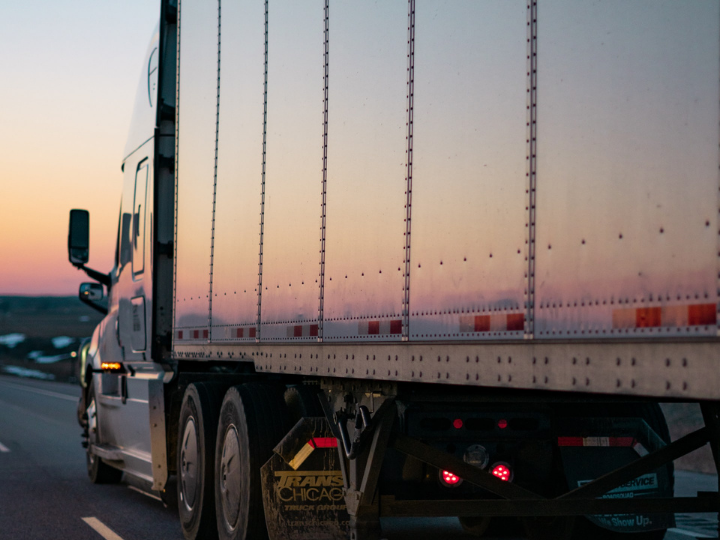by Nikolaus J. Kurmayer
Hydrogen has had a busy year, concluded at the European Hydrogen Week in December with the re-launch of the EU’s public private partnership and EU transport commissioner Adina Valean outlining her vision for hydrogen-based transport in the EU.
Hydrogen is expected to play an important role in decarbonising hard-to-abate sectors like steelmaking, chemicals and transport. The EU estimates that 10-24% of energy use could be hydrogen-based in 2050.
And although electric cars are set to dominate the market for private vehicles, hydrogen is still expected to play a key role in decarbonising heavy duty road transport.
The use of hydrogen in transport via fuel cells that turn hydrogen into electricity has long been an ambition of the EU.
To achieve the EU’s transport decarbonisation goals, hydrogen “refueling stations must be accessible at least every 150 kilometers along our car Trans-European Transport (TEN-T) network by 2030,” explained Adina Valean, the EU’s transport commissioner, during a keynote speech on 1 December.
“This would create a sufficiently dense network of hydrogen refuelling stations to ensure adequate cross-border EU connectivity and to support the 60,000 hydrogen lorries that we envisage seeing on the EU roads by 2030,” she added.
The TEN-T network is an EU project to build a system of roads, railways, airports and water infrastructure.
The 60,000 hydrogen trucks echoes a number put forward in a 2020 study commissioned by the EU’s public private partnership, the Fuel Cell and Hydrogen Joint Undertaking (FCH JU), which said fuel cells were a “very promising zero-emission powertrain solution for the heavy-duty trucking industry.”
The study concluded that fuel-cell hydrogen (FCH) trucks can become cost-competitive by 2027, if hydrogen drops to €6/kg. It also touted the “high operational flexibility and relatively short refuelling time” of hydrogen trucks.
Nonetheless, a supportive legislative framework will be crucial in getting the transport market to accept hydrogen trucks.
Without the EU’s flagship ‘Fit for 55’ package of climate legislation, there would be a mere 3,000 hydrogen trucks on European roads by 2030, a Commission official told EURACTIV.
But with the current proposals to reach the EU’s climate ambitions, that number is expected to climb to 60,000 the official explained.
The cost question
In the study’s scenario, “17% of new trucks sold in 2030” would run on hydrogen provided two key criteria come into place: hydrogen being sold at below €6/kg and “a strong technology cost-reduction trajectory.”
17% of new sales would translate into almost 60,000 trucks running on hydrogen, according to the study, assuming costs continue to fall in line with expectations.
In 2030, green hydrogen could cost as little as €1.8/kg, said Commission President Ursula von der Leyen who spoke at hydrogen week on 29 November. “This is within reach,” she added.
And technology costs could be on a promising trajectory following years of jointly funded research by the EU and industry.
The application of hydrogen fuel cells in long-distance vehicles or buses has “reached a sufficient level of maturity,” explained Lelia Rotaru, communication officer at the FCH JU.
Similarly, a coalition of big vehicle manufacturers including Daimler, Honda and Hyundai committed to deploy 100,000 fuel cell trucks by 2030 to support the “decarbonisation of the European transport sector.”
For the coalition, that brings together the entire value chain, the ability of hydrogen trucks to fulfil “the operational requirements of heavy-duty road transport in terms of range, refuelling time and payload capacity” while being low emission is crucial.
Public private partnership
The ambitious proclamations by von der Leyen and Valean were accompanied by the launch of the successor to the FCH JU, with a €2 billion budget.
The third iteration of the cooperation between the EU and industry was renamed “Clean Hydrogen Partnership” and aim to “produce clean hydrogen at ~€1.5-3/kg” for use in industry and transport.
“The Clean Hydrogen Partnership is built on more than a decade of successful research and innovation in Europe and it is now ready to contribute to Europe’s green evolution,” said Bart Biebuyck, executive director of the FCH JU.
“It’s a great result for the entire community,” he added.
*first published in: www.euractiv.com




 By: N. Peter Kramer
By: N. Peter Kramer
